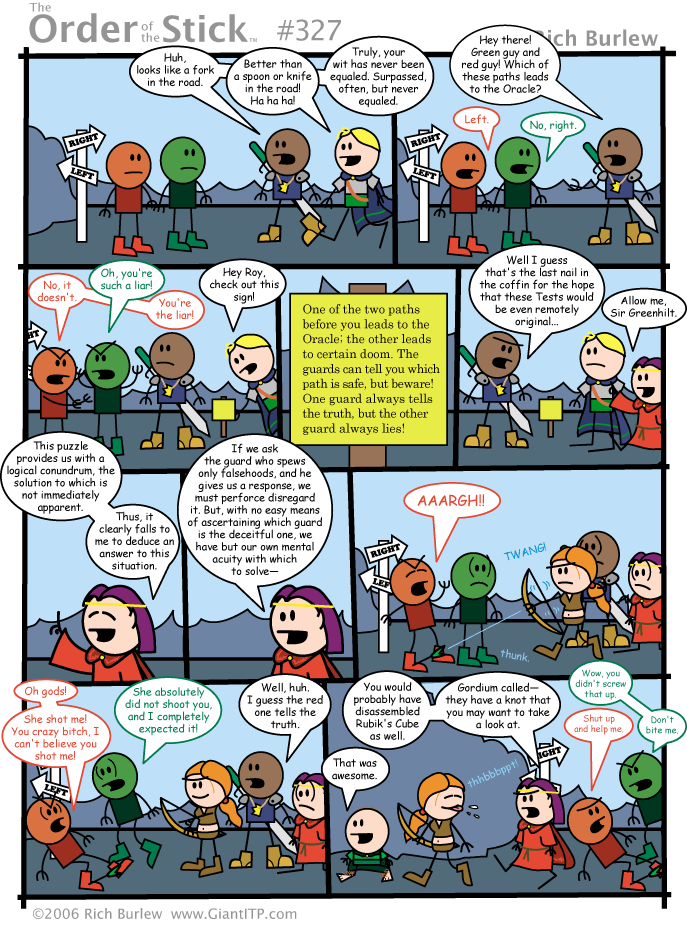April 11, 2007
Logic-puzzle guards as a philosophical resource
In response to my recent post on the xkcd labyrinth guards, Jon Ferro pointed me to another cartoon where a version of the lying/truthful guards puzzle is combined with pointed weapons. This is the neoconservative (or at least neo-Alexandrian) version of the interaction, though.
Notice (in the last panel) that the lying guard interprets "lying" to mean that metaphorical commands should be negated: "Don't bite me."
This seems like bad philosophy of language -- but one of the premises of these puzzles is that the guards always know what to do in order to "tell the truth" or "tell a lie". This suggests that access to such guards would be a valuable philosophical resource -- especially if there's no way out of the labyrinth anyhow, or we can get the needed navigational information with an arrow, so that we're ritually entitled to ask a question that isn't urgently needed to help us find our way in the world.
There's no assumption that the guards are all-knowing with respect to the facts of the world, so we presumably won't get anywhere with direct questions about scientific or theological issues. The truthful guard could just say "I don't know", or give an opinion that has no more value than anyone else's opinion; the lying guard could simply lie about his (her?) opinion.
But if both guards are perfectly able to determine whether arbitrary statements are true or false with respect to their own beliefs, questioning them should allow us to settle questions like whether a sentence with a false presupposition ("The present king of France is bald") is false or indeterminate. Though perhaps we would just transform these questions into questions about the precise definition of "tell the truth" and "lie", and also the nature of the guards' compulsions. Suppose we ask a lying guard whether the present king of France is bald. If he answers "yes", this might mean that that sentences with failing presuppositions are indeed false. But perhaps the sentence has no truth value, and the guard interprets his mandate to lie merely as never saying anything that is true...
Still, it would bring some new facts (or at least some new comic strips) into an old discussion.
Posted by Mark Liberman at April 11, 2007 06:39 AM